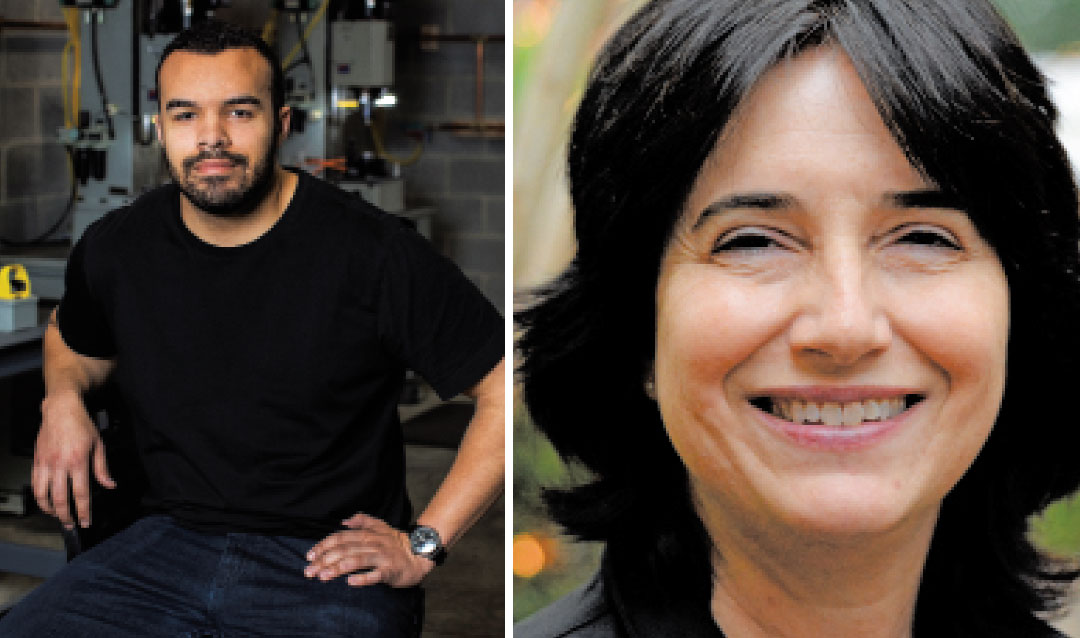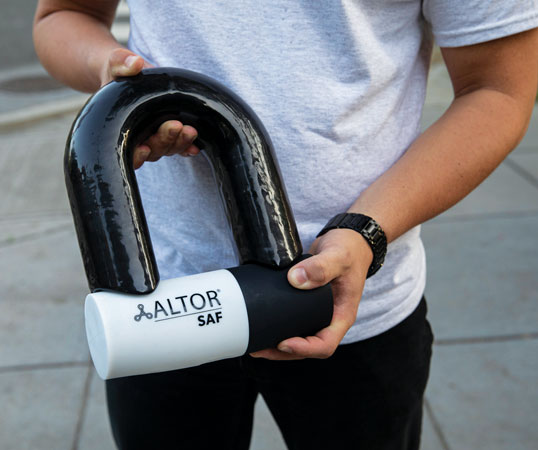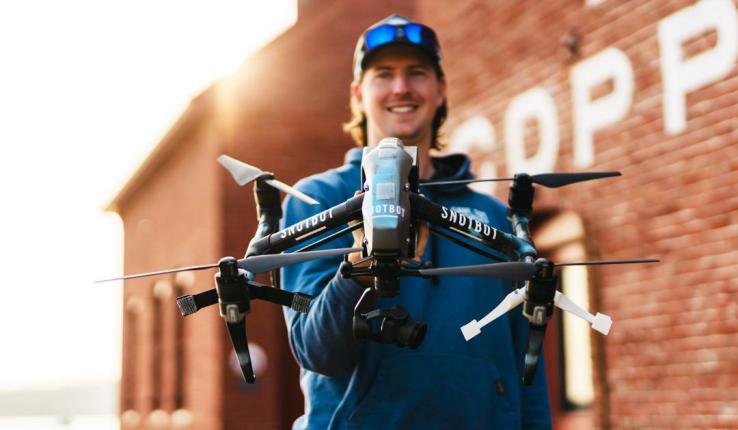When avid cyclist Karen Shihadeh Schaufeld ’83 ’15P ’17P acquired a beautiful, hand-crafted bicycle several years ago, she searched her options for a bike lock that wouldn’t weigh more than the bike itself—and one that thieves couldn’t easily cut through with shears.
“I thought, ‘Well, surely somebody must have something on the market to address this,’ and nobody did,” said Schaufeld. “So that’s why I ended up going to Lehigh.” Schaufeld presented a challenge to students enrolled in Lehigh’s Integrated Product Development (IPD) program (now Technical Entrepreneurship): Create a bike lock that’s lightweight but secure enough to thwart would-be thieves.
She brought props, which included her son’s lightweight bicycle, plus heavy chain locks and bolt cutters. Then, she invited the IPD students to try to cut through the chains, which, of course, they easily could.
Schaufeld, who graduated from Lehigh with a double major in English and government and went on to obtain a law degree, worked with two IPD teams on her idea for a lighter, stronger lock. Innovator and engineer Dylan Cato ’16, who, at the time, was pursuing a degree in mechanical engineering at Lehigh, led one of those IPD teams in developing a prototype that kept to Schaufeld’s concept.
The two went on to cofound Altor Locks, a company that creates innovative bicycle security products. The company’s first patented lock was the titanium folding lock Altor 560G, which weighed only 560 grams and caught the attention of Outside magazine. The patented Altor APEX Ti followed, which, based on consumer feedback, included additional innovative safety features. The locks are assembled in Sterling, Va.
“I wanted to come out with a product that could solve my issue, which was something that was light and strong,” said Schaufeld, the company’s chief executive officer. “But early on, even when we were working on the lightest, strongest lock, there was still that [thought], ‘what if we could do something that can’t be cut.’”
Now Schaufeld and Cato are introducing a new product, a hefty and patent-pending Altor SAF Lock, which is designed to protect against thieves equipped with an increasingly popular handheld tool, a cordless angle grinder. “What happened is, an angle grinder just got cheap,” Schaufeld said, “and it became the tool of choice for a lot of thieves.”






